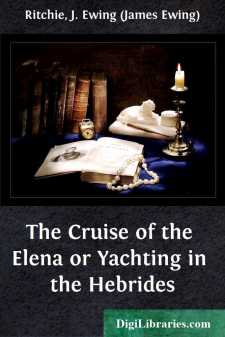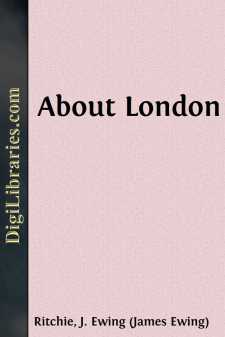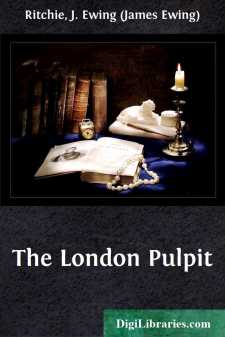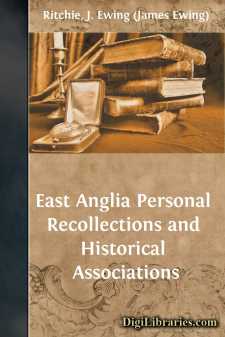Categories
- Antiques & Collectibles 13
- Architecture 36
- Art 48
- Bibles 22
- Biography & Autobiography 813
- Body, Mind & Spirit 142
- Business & Economics 28
- Children's Books 17
- Children's Fiction 14
- Computers 4
- Cooking 94
- Crafts & Hobbies 4
- Drama 346
- Education 46
- Family & Relationships 57
- Fiction 11829
- Games 19
- Gardening 17
- Health & Fitness 34
- History 1377
- House & Home 1
- Humor 147
- Juvenile Fiction 1873
- Juvenile Nonfiction 202
- Language Arts & Disciplines 88
- Law 16
- Literary Collections 686
- Literary Criticism 179
- Mathematics 13
- Medical 41
- Music 40
- Nature 179
- Non-Classifiable 1768
- Performing Arts 7
- Periodicals 1453
- Philosophy 64
- Photography 2
- Poetry 896
- Political Science 203
- Psychology 42
- Reference 154
- Religion 513
- Science 126
- Self-Help 84
- Social Science 81
- Sports & Recreation 34
- Study Aids 3
- Technology & Engineering 59
- Transportation 23
- Travel 463
- True Crime 29
The Cruise of the Elena or Yachting in the Hebrides
Description:
Excerpt
CHAPTER I.
off for greenock.
The late—I had almost written the last—Imperial ruler of France was wont to say—indeed, it was his favourite maxim—“Everything comes to him who waits.” It was not exactly true in his case. Just as he was to have placed himself at the head of his followers, and make his reappearance in France, and to have effaced the recollections of Sedan, Death, who waits for no one, who comes at the appointed time to all, put a stop to his career. Nevertheless, the saying is more or less true, and especially as regards my appearance on board the Elena. Whether my great great grandfather was a Viking or no, I am unable to say; all I know is, from my youth upwards I have longed for a yacht in which I could cruise at my own sweet will. I am no great hand at singing, but when I do sing it is always of a
“Life on the ocean wave,
A home on the rolling deep.”
And thus it happened that, when an invitation was sent to me, just as I was on the point of giving up the ghost, in consequence of the heat of a London summer, to leave Fleet Street, and cruise among the Western Islands of Scotland, I accepted it, as the reader may well suppose, at once.
It is somewhat of a journey by the Midland night express from London to Greenock; but the journey is one well worth taking, even if, as in my case, you do not get a Pullman car, as that had been already filled, and was booked full, so the ticket manager said, for at any rate twelve days in advance. It is really interesting to see that express start. “It is an uncommon fine sight,” said a man to me the other night, as he lit his pipe at the St. Pancras Station. “I always come here when I’ve done work; it is cheaper than a public-house.” And so it is, and far better in awakening the intellect or stimulating the life. It is true I did not see the express start, as I happened to be in it; but I had another and a greater pleasure—that of being whirled along the country, from one great city or hive of industry to another, till I found myself early in the morning looking down from the heights of Greenock on the busy Clyde below. It was a grand panorama, not easily to be forgotten. All at once it opens on you, and you enjoy the view all the more as it comes in so unexpected a manner.
Let me pause, and say a good word for the line that bears me swiftly and safely and pleasantly on.
The story of railway enterprise as connected with the Midland Railway has been told in a very bulky volume by Mr. J. Williams. I learn from it that forty years have elapsed since, originating in the necessity of a few coal-owners, it has gradually stretched out its iron arms till its ramifications are to be found in all parts of the land. Actually, up to the present time it has involved an expenditure of fifty millions, and its annual revenue reaches five. Daily—hourly, it rushes, with its heavy load of tourists, or holiday-makers, or men of business, past the ancient manor-houses of Wingfield, Haddon, and Rousbery; the abbeys of St. Albans, Leicester, Newstead, Kirkstall, Beauchief, and Evesham; the castles of Someries, Skipton, Sandal, Berkeley, Tamworth, Hay, Clifford, Codnor, Ashby, Nottingham, Leicester, Lincoln, and Newark; the battle-fields of St. Albans, Bosworth, Wakefield, Tewkesbury, and Evesham.
But it is to that part of the line between Carlisle and Settle that I would more particularly refer—that boon to the southern tourist who, as the writer did, takes his seat in a Midland carriage at St. Pancras, and finds himself, without a change of carriage, the next morning at Greenock in time for the far-famed breakfasts on board the Iona. The ordinary traveller has no idea of the difficulties which at one time lay between him and his journey’s end. “It is a very rare thing,” once said Mr. Allport, the great Midland Railway manager, a name honoured everywhere, “for me to go down to Carlisle without being turned out twice. Then, although some of the largest towns in England are upon the Midland system, there is no through carriage to Edinburgh, unless we occasionally have a family going down, and then we make an especial arrangement, and apply for a special carriage to go through. We have applied in vain for through carriages to Scotland over and over again.” And so the Midland had no alternative but to have a line of their own. When it was known at Appleby that their Bill had passed the Commons, the church bells were rung, and, as was quaintly remarked, the people wrote to the newspapers, and did all that was proper under the circumstances. No wonder Appleby rejoiced and was glad; for, though the county town of Westmoreland, it is not much of a place after all, and the railway must have been a boon to the natives—especially to the ladies, who otherwise, it is to be feared, would have wasted their sweetness on the desert air....









